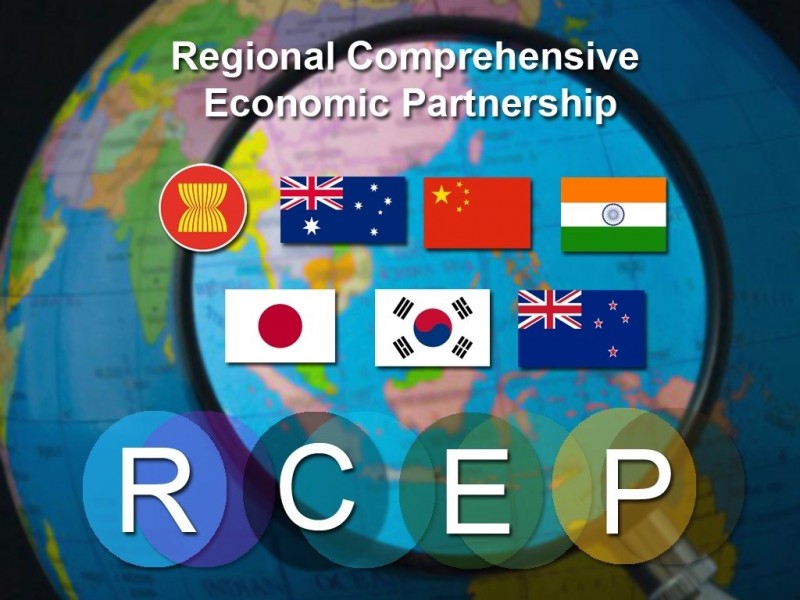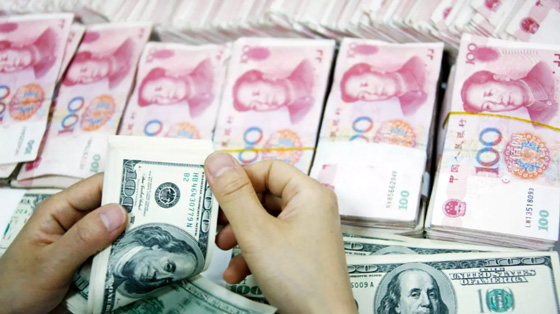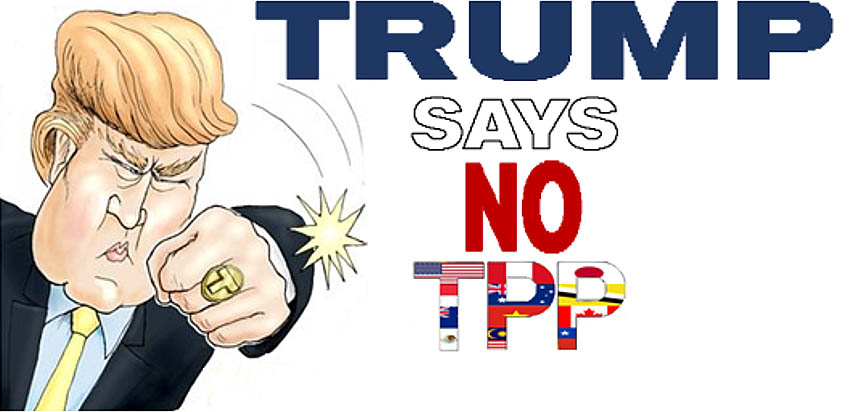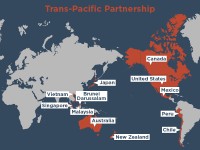Brahma Chellaney, Professor, Center for Policy Research
Feb 04, 2020
The Regional Comprehensive Economic Partnership was set to become the world’s largest free trade agreement. But India’s withdrawal from it has thrown the negotiated trade bloc into imbalance and has underscored India’s qualms with China’s trade practices.

Zhang Monan, Deputy Director of Institute of American and European Studies, CCIEE
Nov 20, 2019
As the WTO-led multilateral trading system has weakened, free trade areas are driving the process of laying down international rules.
Chen Youjun, senior research fellow, Shanghai Institutes for Int'l Studies
Mar 20, 2017
While the Trump administration has announced withdrawal from TPP, in favor of bilateral economic cooperation and negotiation to protect US interests, it does not necessarily mean the US has given up its quest for dominancy in global trade rule-making. Meanwhile, other TPP signatories, including Japan, Australia, New Zealand and Canada, are not willing to let the deal fall by the wayside. That means the spirit of TPP lives on even if the agreement itself does not.

Richard C. K. Burdekin, Jonathan B. Lovelace Professor of Economics, Claremont McKenna College
Mar 10, 2017
If you ignore the dragon, it will eat you. If you try to confront the dragon it will overpower you. If you ride the dragon, you will take advantage of its might and power.
Colin Moreshead, Freelance Writer
Dec 07, 2016
Donald Trump's presidency could reset American presence in Asia and present China with unexpected military and economic opportunities in the region. China's leaders must prioritize their objectives to avoid alienating neighbors, but until Trump chooses his cabinet and interacts with its members, they have little idea of what to expect from the United States in the coming years.
Doug Bandow, Senior Fellow, Cato Institute
Dec 14, 2016
President-elect Donald Trump’s attack on international trade, and especially his intention to withdraw from the Trans-Pacific Partnership (TPP), will allow the People’s Republic of China to seize the economic lead in Asia and prevent any goal of making America great again.
Wu Zhenglong, Senior Research Fellow, China Foundation for International Studies
Dec 14, 2016
The loss of momentum for the Trans-Pacific Partners agreement has diminished the US’ standing as a global power, and taken the wind out of the sails of President Obama’s Pivot to Asia strategy. The result is a brighter prospect for a more regional partnership and China’s push to establish a Free Trade Area of the Asia-Pacific (FTAAP).

Beth Smits, PhD candidate, Paul H. Nitze School of Advanced International Studies (SAIS), Johns Hopkins University
Dec 13, 2016
As the president-elect makes bold statements and takes symbolic actions relevant to US-Sino relations, perhaps a bit of folklore suggests how to think about wise policy actions.

Hugh Stephens, Distinguished Fellow, Asia Pacific Foundation of Canada
Nov 18, 2016
With the election of Donald Trump to the White House, the Obama Administration has finally accepted the inevitable and has announced that it will cease efforts to push the Trans Pacific Partnership (TPP) forward in the waning days of the Lame Duck session. Over the long term, Washington will need to re-assert its trade presence in the Asia-Pacific region. The supply chains are too interwoven and interdependent for the U.S. to go at it alone, despite the isolationist rhetoric emanating from the U.S. election.

Wu Sike, Member on Foreign Affairs Committee, CPPCC
Oct 14, 2015
For China and the United States, a new type of economic and trade relationship with each other is in the best interest of the two major powers, and they should work towards this end. That will require Washington to view the new TTP through the lens of its best economic interests, and join China in creating the world’s largest free-trade zone by around 2030.
Back to Top

- China-US Focus builds trust and understanding between the U.S. and China through open dialogue among thought leaders.
- Our Offerings
- Topics
- Videos
- Podcasts
- Columnists
- Research Reports
- Focus Digest
- Stay Connected
-
Thanks for signing up!
- Get the latest stories from China-US Focus weekly.